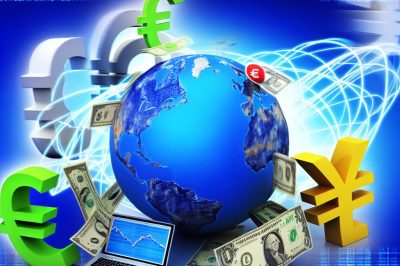The Role of the Forex Market in Global Operations
The foreign exchange market, more commonly known as the forex market, holds the distinction of being the largest and most liquid financial market in the world. Functioning 24 hours a day for five days a week, it ensures that currency trading is an ongoing process across the globe. This market plays a pivotal role in the conversion process of national currencies, which is critical for international trade and investment. For those interested in further exploring the intricacies of forex trading or seeking a reliable platform, more information can be found by visiting Tri Global FX.
Facilitating International Trade
The main purpose of the forex market is to facilitate international trade. With the ability to swiftly convert currencies, it allows businesses to engage with international partners by purchasing goods and services in the supplier’s currency. This is especially important for corporations that operate on a global scale. Take, for example, a German company that plans to buy products from a supplier in Japan; it needs to convert euros into yen to complete the purchase. The efficiency provided by the forex market ensures that such transactions are seamless, enabling businesses to execute cross-border operations with ease and reliability.
Supporting Global Investments
Investors rely on the forex market to manage their exposure to foreign currencies. When an individual or entity seeks to invest beyond their national borders, they must first convert their currency into the currency of the target investment country. Given the significant volumes often involved, this process is crucial in promoting global investment flows. The forex market also facilitates the ability to hedge against currency risk, providing a range of financial instruments for this purpose. Investors and institutions can safeguard their portfolios from unwanted currency fluctuations, turning to resources like CME Group and NYSE for comprehensive insights on these instruments.
Balancing Currency Values
Exchange rates, determined by the forex market, serve as a key factor in maintaining the balance between different currencies. These rates are a reflection of the ongoing supply and demand forces and have a wide-ranging impact on global economic conditions. For example, a country’s currency value plays a critical role in its export strategies. If a currency loses value, it can make exports more competitively priced and appealing to foreign buyers, while a stronger currency could raise export costs. This exchange mechanism helps maintain an equilibrium in trade and investment, with a profound effect on global economic stability.
Enabling Central Bank and Government Policy Execution
Central banks and government bodies are active participants in the forex market, often taking steps to stabilize or stimulate their respective economies. These entities may intervene by purchasing or selling currencies to steer exchange rates in accordance with their fiscal or monetary policy goals. Such interventions have ramifications for interest rates, inflation, and employment rates. Consider a scenario where a country deliberately devalues its currency to combat deflation—by making exports cheaper, it can invigorate economic activity. Thus, the forex market acts as a vital tool for policy implementation.
Providing a Platform for Speculation and Risk Management
Beyond its conventional roles, the forex market also serves as a platform for speculation. Traders strategically position themselves based on anticipated currency movements, aiming to capitalize on exchange rate fluctuations. This speculative activity contributes to market liquidity, facilitating smoother transactions for others. Additionally, businesses and investors utilize forex instruments to manage risk, protecting themselves against unfavorable currency shifts. Instruments such as futures, options, and forwards are widely employed within the forex market for these purposes, providing entities with the tools needed to manage potential risks effectively.
Conclusion
The forex market is a cornerstone of the global economy, fostering operational harmony and economic stability. By allowing for efficient currency conversion, bolstering investment activities, balancing exchange rates, enabling policy actions, and offering a platform for risk management, it ensures that the world economy remains interconnected and operates coherently. Exploring further opportunities or learning more about forex trading can be beneficial for those interested in taking part in this dynamic, influential market space.





